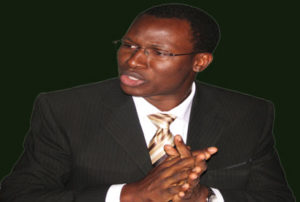The Nigerian digital economy appears to be growing from strength to strength despite problem of infrastructure deficit. In fact, it is expected to generate up to $88 billion and three billion jobs for Nigerians before the end of 2021, if the statistics given by the Chairman of the Association of Licensed Telecoms Companies of Nigeria, ALTON, Engr. Gbenga Adebayo, is anything to rely upon.
In this interview with Emeka Aginam, Adebayo also spoke on a number of industry issues, including the abysmal growth of financial inclusion in Nigeria.
Excerpt:
Can you guess Nigeria’s digital competitiveness in the next five years?
There are indications that investments in the digital economy will generate up to $88 billion and three billion jobs for Nigerians before the end of 2021. The Nigerian technology sector has recorded some progress and doubled in size, now accounting for up to 9 percent of our GDP. However, in the second edition of the world digital competitiveness ranking, released in 2018, which measures knowledge, technology and future readiness, Nigeria was not on the list.

We believe that the commitment and investments in industry infrastructure by telecommunications and network operators, aimed at achieving 30 percent broadband penetration by end of 2018, and building incremental growth thereafter, will go a long way towards rectifying this; and as such, we hope to have contributed to building a fully digital economy in Nigeria by 2020.
You have always raised the issue of challenges of mobile operators in Nigeria. How can government address it?
The impact of our industry on national security and economic activities is enormous and could be leveraged further by government agencies. However, an increased level of protection is required for the operators’ resources. The telecommunications sector should be designated and classified as critical national socio-economic and security infrastructure in order to reduce incidences of service disruption from the activities of revenue collection agencies, and wilful damage to critical network infrastructure. We’d also like to see government efforts in reducing cases of duplicate regulations.
What’s our journey towards financial inclusion like; is it purposeful?
Our financial inclusion growth rates are disappointing, especially in contrast with the global and regional landscape – between 2014 and 2017, global inclusion rates rose by seven per cent, Sub-Sahara Africa growth rates rose by 9 per cent; Nigeria, in comparison, experienced an increase of 1 percent. The 2014-2017 economic crises certainly played a significant role in limiting the growth of inclusion; factors like job losses, business closures and increasing unemployment rates, led to reduced spending and saving power for millions of Nigerians. Limited infrastructure is another factor.
Some of these factors are beyond anyone’s control, but if we better leverage the resources that we have at our disposal, we will begin to see more tangible results. Mobile money presents a robust solution, as the Nigerian mobile market continues to grow enormously, with 162 million subscribers and an 85 percent penetration rate. Improved cross-industry collaboration amongst key players and regulations that accommodate Telecoms Operators will help to bridge the financial inclusion gap in a sustainable way.
GSM operators have promised to extend financial inclusion to 90 million Nigerians by year 2020, is that possible?
This commitment, when evaluated against a backdrop of their capacity and expertise, is extremely significant and could reduce Nigeria’s exclusion rate to as close to zero as possible. The Nigerian telecommunications industry has the technology, requisite infrastructure, subscriber base, distribution and contact point network that can be leveraged to quickly give many un-served Nigerians access to financial services.
These network operators have a combined reach of 85 per cent of Nigeria’s landmass; up to 1,000,000 unique agents across the country, creating a strong distribution network; and they have service contact points in all Nigerian local government areas. This, in addition to a subscriber base of over 160 million individuals, means that the telecommunications industry holds the largest coverage and customer base of any industry in Nigeria.
Through their existing distribution network, and in collaboration with banks and financial service providers, the leading network providers – Glo, 9Mobile, Airtel and MTN – have committed to making use of their agents to improve access and distribution of financial services and products.
Is it actually the role of Telcos to drive financial inclusion?
We are collectively driving this process as an industry, and with the understanding that the telecoms industry has the most reliable public and socio-economic infrastructure in Nigeria; we came together as an industry to discuss how we could effectively contribute to one of the greatest potential drivers to our national development. We have agreed to deliver a concrete commitment to Nigeria – a promise to materially improve financial inclusion rates and to deliver access to financial services to 90 million customers within the next 30 months. This will be done by using our customer service agents and distribution networks across the country; in 30 months, which is the deadline we have set for ourselves, our aim is to have brought access to financial services to 90 million customers, to be serviced by 600,000 agents.
Source: https://www.vanguardngr.com/2018/10/nigerias-digital-economy-to-generate-88b-by-2021-adebayo-alton-chairman-2/


